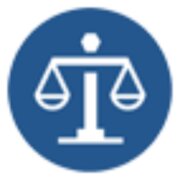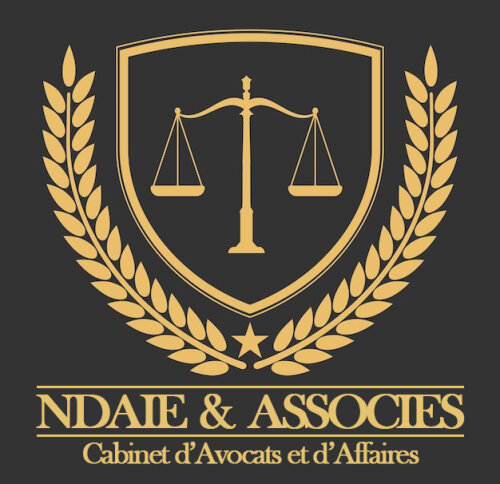Best Tax Lawyers in DR Congo
Share your needs with us, get contacted by law firms.
Free. Takes 2 min.
Or refine your search by selecting a city:
List of the best lawyers in DR Congo
About Tax Law in DR Congo
The Democratic Republic of the Congo (DR Congo) has a complex tax system that encompasses various types of taxes, including income tax, corporate tax, value-added tax (VAT), and custom duties. The tax system is governed by various legal instruments, aiming to regulate the financial contributions required from individuals and businesses for the state's revenue. Tax regulations in DR Congo are continually evolving as the government seeks to increase compliance and broaden the tax base.
Why You May Need a Lawyer
Many situations may necessitate professional legal advice when dealing with tax issues in DR Congo. These include:
- Understanding changes in tax legislation which may affect your business or personal finances.
- Resolving disputes with the tax authorities or addressing penalties for alleged non-compliance.
- Optimizing tax obligations to ensure legal compliance while minimizing tax liability.
- Handling complex tax filings and audits, especially for multinational corporations operating in DR Congo.
- Assisting with estate and inheritance taxes.
Local Laws Overview
Key aspects of tax laws in DR Congo include:
- Corporate Income Tax: Applicable to resident companies on worldwide income and non-residents on Congo-sourced income.
- Personal Income Tax: Levied on individuals with varying rates depending on income brackets.
- Value-Added Tax (VAT): Standard rate is applied to most goods and services with specific exemptions.
- Custom Duties: Applied to goods imported into the country, with different rates based on the type and value of goods.
- Tax Administration: The Directorate General of Taxes (DGI) is the body responsible for tax collection and enforcement.
Frequently Asked Questions
What is the standard VAT rate in DR Congo?
The standard VAT rate in DR Congo is 16%. However, some goods and services may be exempt or subject to reduced rates.
How are corporate taxes calculated for businesses in DR Congo?
Corporate taxes are generally calculated on the net taxable income of a company, which includes income minus allowable deductions and expenses.
Can foreign companies operate in DR Congo without a local presence?
Foreign entities must establish a local legal presence to operate fully in DR Congo and comply with related taxation requirements.
What are the penalties for late payment of taxes in DR Congo?
Penalties typically include fines and interest on overdue taxes. The specific amounts can vary based on the tax type and the period overdue.
Are there any tax incentives for new businesses in DR Congo?
Yes, certain tax incentives and exemptions may be available for new and strategic businesses, particularly in sectors like mining and agriculture.
How often must businesses file tax returns?
Businesses typically need to file tax returns annually, but other tax obligations such as VAT must be submitted more frequently.
What documentation is required for tax compliance in DR Congo?
Required documentation can include financial statements, transaction records, and any other documents supporting deductions, exemptions, or claims.
Is there a double taxation agreement with other countries?
DR Congo has signed double taxation agreements with several countries to avoid tax duplication on income generated across borders.
How does one dispute a tax assessment in DR Congo?
A tax assessment can be disputed by filing an appeal with the tax authorities, following specific procedures outlined by the DGI.
What taxes apply to expatriates working in DR Congo?
Expatriates are subject to personal income tax on their earnings in DR Congo, and potentially other taxes depending on residency status and income type.
Additional Resources
- Directorate General of Taxes (DGI): The primary government body for tax administration and policy in DR Congo.
- Chamber of Commerce: An organization that can provide insights and assistance for businesses regarding compliance and changes in tax legislation.
- Local Accountancy Firms: These can offer professional assistance and advisory services on tax matters.
Next Steps
If you require legal assistance in tax matters, consider taking the following steps:
- Consult a Legal Expert: Engage with a lawyer specializing in tax law in DR Congo to gain expert guidance tailored to your situation.
- Prepare Documentation: Gather all necessary financial records and documentation related to your tax matters before consulting a professional.
- Engage with DGI: For resolutions, ensure clear communication with the Directorate General of Taxes, possibly facilitated by your legal representative.
- Stay Informed: Keep up-to-date with any legislative changes affecting tax regulations in DR Congo.
Lawzana helps you find the best lawyers and law firms in DR Congo through a curated and pre-screened list of qualified legal professionals. Our platform offers rankings and detailed profiles of attorneys and law firms, allowing you to compare based on practice areas, including Tax, experience, and client feedback.
Each profile includes a description of the firm's areas of practice, client reviews, team members and partners, year of establishment, spoken languages, office locations, contact information, social media presence, and any published articles or resources. Most firms on our platform speak English and are experienced in both local and international legal matters.
Get a quote from top-rated law firms in DR Congo — quickly, securely, and without unnecessary hassle.
Disclaimer:
The information provided on this page is for general informational purposes only and does not constitute legal advice. While we strive to ensure the accuracy and relevance of the content, legal information may change over time, and interpretations of the law can vary. You should always consult with a qualified legal professional for advice specific to your situation.
We disclaim all liability for actions taken or not taken based on the content of this page. If you believe any information is incorrect or outdated, please contact us, and we will review and update it where appropriate.
Browse tax law firms by city in DR Congo
Refine your search by selecting a city.

















